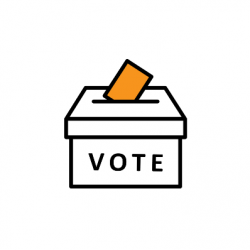As you know, Tuesday, November 3, 2020 is Election Day including the Presidential election, though a number of States permit early voting. In fact, it has been reported that at least 27 million Americans have already cast their ballot for President. November 3rd is also Election Day for many Congressional representatives up for re-election, and the date of many state and local elections. Specifically, voters in 44 states will choose more than 6,000 state legislators on Nov. 3, 2020.
Each State has its own laws regarding whether and how much time off employees are permitted on November 3rd in order to vote and whether employers must post a workplace notice of employees’ voting rights in the workplace (yes, for New York and California).
New York amended its Voting Leave law on April 3, 2020, requiring employers to offer employees “up to two hours’ paid voting leave (not three) if employees do not have sufficient time to vote,” and to conspicuously post a notice in the workplace regarding employees’ rights for time off to vote at least 10 working days before Election Day. An employee has “sufficient time to vote” if s/he has four consecutive hours to vote either from the opening of the polls to the beginning of their work shift, or between the end of a working shift and the closing of the polls to vote. New York employers may not require employees to use their paid time off to vote. (The time off and notice posting requirements do not apply to early voting periods, however). Employees must notify their employers at least two working days before their intention to take paid time off to vote, but not more than ten working days.
New York employers should once again update their voting leave policies in their employee handbooks and ensure they have posted notices of voting leave rights in a conspicuous location in the workplace (if staff is working remotely, email copies of employee voting rights to all such employees).
Reminder to Nonprofits: In October, the New York State Attorney General’s Charities Bureau issued guidance for certain tax-exempt organizations on prohibitions against political activity and permissible election-related activities. The guidance notes that, with respect to pre-election and lobbying activities, 501(c)(3) organizations may not: 1) make or solicit contributions for, on behalf of, or against any candidate for public office or to a political party; 2) endorse or oppose a candidate for public office at the federal, state or local level; 3) allow their resources—including letterhead stationery, electronic communications systems, telephones, and other property or equipment– to be used in support of or opposition to any campaign of a candidate for public office; 4) make statements in support of or in opposition to a candidate or a political party, whether orally, recorded or in writing, including by in-person distribution, mail, email, text, or posting on social media or the Internet; or 5) provide funds to a 501(c)(4) organization without controls to assure that the funds are used solely for 501(c)(3) exempt activities, and not for political campaign activity. It further notes that “violation of these prohibitions may result in the denial or revocation of tax-exempt status by the IRS, the loss of exemption from New York income, sales and use taxes, and enforcement or regulatory actions by the New York Attorney General.” That said, charities may conduct nonpartisan activities that educate the public and help them participate in the electoral process. For example, presenting at public forums and publishing voter education guides does not constitute prohibited political campaign activity if the activity is conducted in a non-partisan manner.
To find out more about employer legal obligations with respect to employee voting rights, see https://www.workplacefairness.org/voting-rights-time-off-work. To learn more about the elections and ballot measures occurring in each state on November 3rd, you can refer to this link: https://www.ncsl.org/research/elections-and-campaigns/ncsl-state-elections-2020.aspx.
If you have any questions about your legal obligations, please contact Lisa Brauner, Esq., Head of Perlman & Perlman LLP’s Employment Law Practice, lisa@perlmanandperlman.com, 212-889-0575.
The information provided in this document does not constitute legal advice, and is not intended to substitute for legal counsel.
-
Perlman & Perlmanhttps://www.staging-perlmanandperlman.com/author/nancyisrael/
-
Perlman & Perlmanhttps://www.staging-perlmanandperlman.com/author/nancyisrael/
-
Perlman & Perlmanhttps://www.staging-perlmanandperlman.com/author/nancyisrael/
-
Perlman & Perlmanhttps://www.staging-perlmanandperlman.com/author/nancyisrael/







